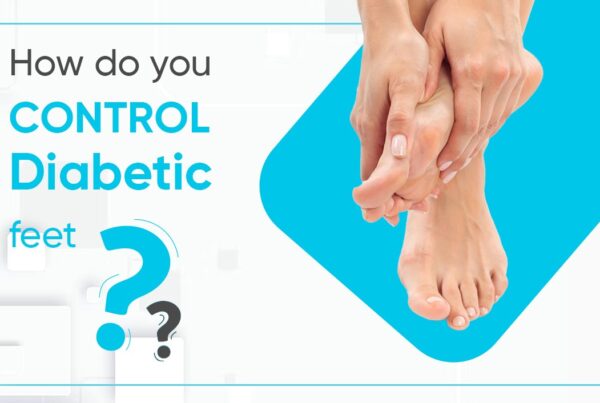The human body contains a built-in clock, known as the circadian rhythm, that determines when we sleep and when we wake up. This circadian cycle allows us to sleep and wake up at the same time. Obese, high blood cholesterol, high blood pressure, diabetes, and a variety of other health issues have been linked to disrupted circadian rhythms, particularly in persons who work at night. Long-term night-shift work, according to a recent study undertaken by Chinese and American researchers, can raise the risk of atrial fibrillation and coronary artery disease.
What is the difference between atrial fibrillation and coronary artery disease?
Atrial Fibrillation is an arrhythmia in which the heart’s upper chamber is unable to properly send blood to the lower chamber. Blood clots, strokes, and other heart-related issues can emerge as a result of this.
Contrary to popular belief, coronary heart disease is a disorder in which the blood flow to the coronary artery is obstructed by a build-up of fat or cholesterol. The buildup of fat in the arteries can constrict or totally block them, limiting the blood flow to the heart.
The study’s title is “Measuring the Heart’s Impact on Working Shifts.”
Researchers have included records of 2,83,657 participants without even a history of AF, CHD, stroke, or heart failure in the study, which was released in the European Heart Journal on August 10th, 2021.
These participants were separated into four groups based on their working shift schedules:
Those that labour during the day (82.7 percent )
Day shifts are the most common, but night shifts are quite rare (8.5 percent )
Some night shifts are given (5 percent )
Night shifts, whether regular or permanent (3.9 percent )
The participants were then divided into two groups: those who are now doing night shifts and those who had worked night shifts for a long period.
The investigation’s findings:
The scientists discovered the following after a more than ten-year follow-up:
People who worked regular or continuous night shifts had a higher risk of having AF and CHD, followed by those who worked occasional night shifts and those who never or seldom worked night shifts. Day workers were found to be the least in danger.
Current and lifetime night shift workers have the highest risk of acquiring AF.
When compared to day employees, those who worked night shifts on a regular or permanent basis had a 12 percent higher risk of AF. Nevertheless, for individuals who worked night shifts for a long time, the factor increases to 18% after ten years.
According to the study, the longer the night shifts, the higher the risk of AF. People who worked three to eight-night shifts each month had a 22 percent increased chance of having AF and CHD.
Night shifts were substantially linked to an increased risk of coronary heart disease but had no effect on the risk of stroke or heart failure.
When compared to men, women who worked night shifts for more than ten years had a greater chance of acquiring atrial fibrillation.
The risk of developing AF was 64 percent higher in night shift employees than in day shift workers.
While being subjected to a lifetime of night shift work, participants who conducted moderate-intensity workouts for 150 minutes a week or high-intensity activities for 75 minutes a week or more had a decreased incidence of AF.
Previous research:
Night shifts have also been proven to have a deleterious impact on cardiovascular health in previous studies. These are some of the studies:
On the 2nd of March 2009, a study published in the journal Proceedings of the National Academy of Sciences examined the eating and sleeping habits of five working men and women for ten days. According to the findings, people who worked night shifts for a long time had lower levels of leptin and insulin and higher levels of cortisol, which increased their risk of diabetes, cardiovascular disease, and obesity.
The impact of shift work on vascular health was explored in a review of 34 research published in the BMJ in 2012, which included almost 2 million individuals. The study found that persons who worked irregular or night shifts had a 23 percent, 24 percent, and 5% higher risk of heart attack, coronary heart disease, and stroke, respectively, than those who worked day shifts.
Another study in the journal JAMA in 2018 looked at the health data and work shifts of roughly 18,900 women over the course of 24 years. According to the findings, people who work rare night shifts for a long time have a higher chance of acquiring coronary heart disease. Participants who worked three or more night shifts per month for a decade had a 15% to 18% greater risk of CHD than those who did not work rotating shifts, according to the researchers.
How can one maintain a healthy heart?
The following are some measures that can help maintain your heart fit and prevent heart disease:
A fiber diet rich in green vegetables, fruits and veggies, whole grains, and healthful nuts and seeds is recommended. To keep cholesterol levels in check, it’s best to stay away from fatty and high-fat foods.
30 minutes of moderate-intensity activity, such as brisk walking, cycling, swimming, or dancing, every day, five days a week.
Smoking cessation and avoidance of secondhand smoke.
Women should limit alcohol consumption to 1 drink per day and 2 drinks per day for men.
Caffeine usage should be limited to 400 mg per day.
Getting at least 7 to 8 hours of sleep per day.
Before taking any cough or congestion medication, consult a doctor because it may contain pseudoephedrine or phenylephrine, which can cause palpitations.
Getting sleep apnea and diabetes treated, as these conditions might raise the chance of getting arrhythmias.
Conclusion:
People working night shifts for a long time are more likely to develop an abnormal heart rhythm and many other heart-related disorders, according to several studies. As a result, it is critical to regulating working shift patterns in order to lower the risk of cardiovascular disease. To maintain optimal heart health, one should eat a well-balanced diet, get enough sleep, and exercise on a regular basis.
Feel free to contact me to discuss this topic further or to book a consultation.









